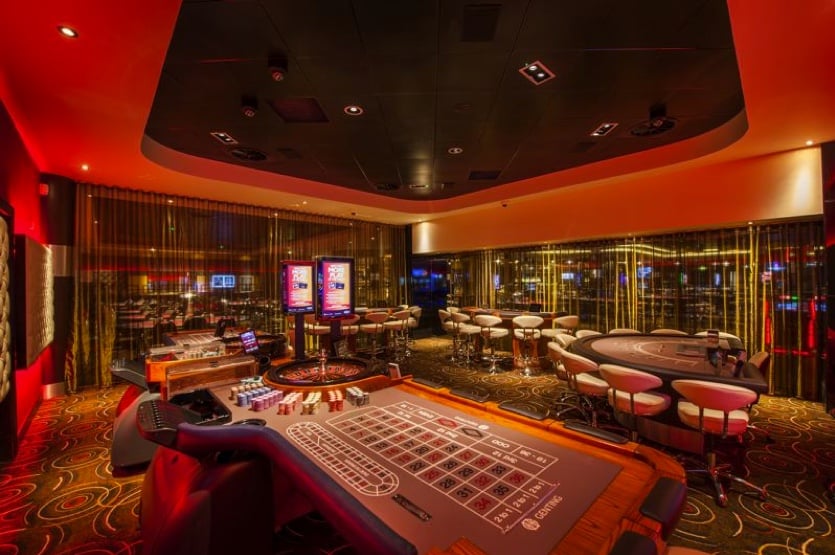
Gambling games have long been a fascinating entertainment option, drawing numerous of players from different cultures around the globe. From the lively casinos of Las Vegas to the bustling gambling halls of Macau, these games serve as a common thread that unites people across a variety of backgrounds. The allure of chance, tactics, and uncertainty entices not only those seeking to gamble for profit but also those in search of a feeling of belonging.
The cultural impact of casino games extends well beyond the gaming floor. They often represent the social norms and traditions of the cultures in which they prosper. Games such as seven-card stud, 21, and the spinning wheel have integrated into the tapestry of popular culture, influencing multiple fields from movies to fashion. As we explore this captivating intersection of luck and life, we can better understand how these games shape and are shaped by the environment surrounding us.
Chronological Development of Casino Activities
The origins of gaming games can be traced back to old cultures, where gambling in different forms was widely engaged in. In Ancient China, around 2300 B.C., a type of luck game known as Keno was common, while in historic the Roman Empire, soldiers would often gamble on the consequences of their contests. The idea of using chance for entertainment and gain developed over the ages, leading to the establishment of more formal activities. By the final Middle Ages, betting houses initiated to emerge in the continent, particularly in Italy, which introduced early incarnations of well-liked activities still enjoyed today.
As gambling gained popularity in the continent, the 17th and 18th centuries saw the appearance of gaming houses as dedicated locations for betting. The first official casino, the Ridotto, was set up in the city of Venice in sixteen thirty-eight, providing games like Baccarat games and Faro. This period marked a significant shifting point, as casinos began to welcome not just the high society but also the growing middle class. The complexity of activities increased, leading to the development of new regulations and modifications that enhanced the play experience.
In the 19th century, the industrial age and shifts in societal conventions additionally changed the environment of gambling games. The launch of the game of roulette and modern one-armed bandits drew a more diverse audience, and gaming houses became seen as acceptable entertainment. This period witnessed the globalization of gaming, as gambling houses expanded from Europe to the New World, culminating in the establishment of the famous Strip of Las Vegas in the 1900s. The progress of casino games has progressed into the modern era, incorporating new technologies and digital services, making them accessible to a worldwide audience.
## Cultural Importance in Diverse Societies
Casino activities have significant cultural and social significance across a multitude of cultures across the globe. Places like Las Vegas, the very essence of the city is woven around gambling establishments, where playing is not just a recreational activity but a key aspect of social engagement and community interaction. The vivid lights and dynamic atmosphere attract millions, showcasing how casino games can impact local financial landscapes and cultural identities. This surrounding transforms the notion of recreation into an immersive experience that shapes apparel, sound, and even film.
In contrast, some societies treat betting with an air of caution, viewing it through the lens of morality and customs. For instance, in various Eastern societies, games like Mahjong and Pai Gow Gambling are rich with history and possess significant social meanings. These games are often played during meetings and festivities, fostering collective connections and solidifying family ties. The act of playing these games goes above mere entertainment, reflecting principles such as deference to seniors and the value of communal fun.
Meanwhile, in European countries such as the principality of Monaco and Rome, casino games serve as symbols of luxury and refinement. The stylish atmosphere of these locations attracts both visitors and locals, reinforcing a sense of distinction and elitism. The art of poker and the strategic features of games like banker’s game are esteemed, molding interpersonal interactions and establishing an allure that fascinates a heterogeneous audience. This underscores how gambling can both reflect and influence cultural attitudes towards hazard, reward, and community interaction.
Economic Impact and Tourism
Gambling activities play a important role in the economic landscape of many areas, particularly those that rely heavily on visitor traffic. Vivu88 The revenue produced from casino operations fuels local economies, creating employment opportunities not only within the casinos but also but also in connected industries such as hospitality, dining, and entertainment. This influx of tourists, drawn by the attraction of games and the overall casino experience, stimulates expenditure across multiple businesses, contributing to the economic vitality of the area.
The existence of casinos often leads to the construction of facilities, including hotels, transportation systems, and recreational facilities. These improvements are essential in enhancing the overall visitor satisfaction, making locations more appealing to visitors. Additionally, many casinos contribute in local communities through sponsorship of events and charitable activities, further embedding themselves into the social fabric of the region. Such contribution not only supports economic growth but also fosters a positive reputation of the gambling sector.
In addition, the worldwide appeal of casino games drives competitive tourism, with locations vying to attract players from across the globe. Iconic destinations like Las Vegas and Macau have become synonymous with gambling culture, drawing millions each year. This advantage encourages creativity and variety within the gaming industry, influencing developments in entertainment and accommodation that extend beyond their borders. The ripple effects of this visitor influx extend far, impacting local economies and cultural interactions on a worldwide scale.